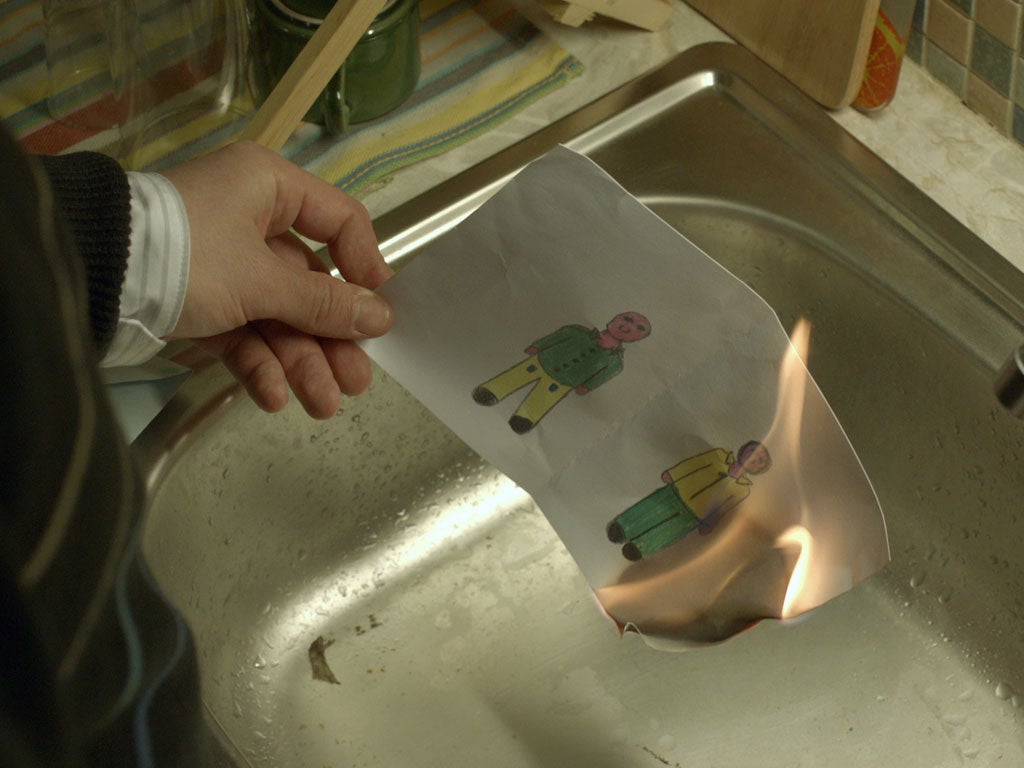Michael, Markus Schleinzer, 94 Mins (18)
Austrian cinema just got grimmer

Your support helps us to tell the story
From reproductive rights to climate change to Big Tech, The Independent is on the ground when the story is developing. Whether it's investigating the financials of Elon Musk's pro-Trump PAC or producing our latest documentary, 'The A Word', which shines a light on the American women fighting for reproductive rights, we know how important it is to parse out the facts from the messaging.
At such a critical moment in US history, we need reporters on the ground. Your donation allows us to keep sending journalists to speak to both sides of the story.
The Independent is trusted by Americans across the entire political spectrum. And unlike many other quality news outlets, we choose not to lock Americans out of our reporting and analysis with paywalls. We believe quality journalism should be available to everyone, paid for by those who can afford it.
Your support makes all the difference.You don't normally look to Austrian cinema for a good time, as Michael Haneke fans know. But even by Austrian standards, Markus Schleinzer's Michael is sobering – the story of a paedophile kidnapper and his 10-year-old captive.
Michael (Michael Fuith) is the 35-year-old resident of a drab house in a suburban street. A diffident employee in an insurance firm, he's the very model of the loner who, as shocked neighbours invariably say in news reports, "keeps himself to himself". There's a reason: he has a young boy locked in his cellar. We see man and boy sit down to a taciturn supper of meatloaf; afterwards, they tidy up together, a neat Austrian ménage. But there is no doubt – as Schleinzer makes clear, subtly but no less shockingly, by a discreet cut – just what Michael does to his captive below stairs.
In addition, Michael inflicts various kinds of psychological violence on him. He hides the letters that the child faithfully writes to his parents and leaves him alone for extended periods, at one point heading off on a queasily farcical ski trip. You might recoil if I told you that Michael was made with a degree of black humour. But it's partly this grim absurdism that makes the film possible to watch. In one scene Michael, hugely taken with a nasty line of dialogue from a horror movie, tries it out on the boy – who remains stonily unimpressed. This moment exposes the unnatural balance of this enforced relationship: trauma has made the boy prematurely adult, while Michael is revealed as a damaged child. The strength of the drama partly stems from the earnest, resilient presence of David Rauchenberger as the young captive (whose name, credits reveal, is Wolfgang, although I don't think we hear it during the film – a token of the way he's been robbed of his identity).
Schleinzer – previously Haneke's casting director – wants to examine the topic of child abuse outside the perspective of media rhetoric (no easy task in Austria, given the national shock caused by the Fritzl and Kampusch cases). Michael's lucid, uninflected style suggests a spirit of quasi-scientific observation: Schleinzer invites us to study his protagonist rather than "understand" him. Actor Michael Fuith gives the banality of evil an extra coat of beige in his unnerving depiction of a man who somehow isn't there, a walking void that occasionally explodes in bursts of infantile petulance. You have to admire Fuith for the controlled brilliance of his performance – and for his nerve in accepting a role that seems more than likely to get him beaten up one day.
Schleinzer's cool, clinical direction is very much school-of-Haneke. But while Michael is extremely uncomfortable viewing, the fact that it's never pitched for either pathos or horror makes the film all the more challenging – because it so directly tests our understanding of normality and aberration, humanity and inhumanity. Michael is a very fine, very serious film, yet ultimately, I think, for a limited audience – students of deviant psychopathology, and of this strain of fine, serious cinema. If that's you, then you won't be sorry you saw Michael – but in all honesty, I don't think you'll be that glad either.
Film choice
You think you've had your fill of tough cops on the edge? Then try Woody Harrelson's LA officer, as written by crime novelist James Ellroy, in Oren Moverman's drama Rampart. The godfather of Danish film, the man Von Trier reveres, is Carl Theodor Dreyer, subject of a season at the BFI Southbank, London (to 23 Mar).
Join our commenting forum
Join thought-provoking conversations, follow other Independent readers and see their replies
Comments